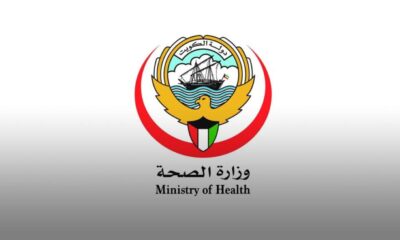KUWAIT: Peru and Kuwait are in the process of negotiating two significant agreements aimed at strengthening bilateral ties, Foreign Minister of Peru Elmer Schialer Salcedo told Kuwait Times in an exclusive interview Tuesday.
Salcedo arrived in Kuwait on an official visit commemorating the 50th anniversary of establishing diplomatic relations between the two countries. Peru’s top diplomat met with His Highness the Crown Prince Sheikh Sabah Al-Khaled Al-Hamad Al-Sabah at Bayan Palace, where he delivered a message addressed to His Highness the Amir Sheikh Meshal Al-Ahmad Al-Jaber Al-Sabah from Dina Ercilia Boluarte, President of Peru. In the message, the president “expressed willingness to strengthen political relations at the highest level,” said Salcedo.
According to Peruvian officials, discussions are underway for an agreement on technical and economic cooperation, as well as another focused on the promotion and protection of investments. Salcedo said the agreements are expected to provide a solid legal framework to enhance investment, trade, and the exchange of knowledge between the two countries, with a particular emphasis on advancing long-term food security initiatives.
Foreign Minister of Peru Elmer Schialer Salcedo meets with Kuwaiti Finance Minister Noura Al-Fassam.
Peru’s top diplomat meets his Kuwaiti counterpart Abdullah Al-Yahya.
The minister affirmed that his country has expressed its commitment to strengthening its bilateral relationship with Kuwait under the leadership of His Highness Sheikh Meshal. “Peru sees the partnership as even more relevant today, where the two countries have cultivated a solid friendship, fostered by ongoing political dialogue, cultural exchanges, and the dynamic partnership is full of promise for future growth and cooperation,” he commented.
The minister described his visit as “the return,” saying that this milestone marks a renewed effort to deepen the strong bilateral ties between the two countries. He highlighted the shared characteristics of both countries, including complex geographies that pose challenges such as water scarcity, limited arable land, and the imperative for economic diversification.
Despite these obstacles, both Peru and Kuwait have adopted forward-looking policies to reduce reliance on oil revenues and have successfully pursued strategies to diversify international trade. As a result, both countries have positioned themselves as strategic hubs for global investment, playing an increasingly vital role in supporting international economic stability and contributing to global peace and security. The Peruvian minister has underscored several key achievements that have shaped the partnership, saying that among the most notable are the establishment of political dialogue through the Political Consultations Mechanism and the signing of agreements in the fields of culture and the arts.
“Peru also views its growing ties with other Gulf countries as reinforcing the strategic importance of its relationship with Kuwait. Looking ahead, a major milestone on the horizon is the planned discussion of a comprehensive roadmap aimed at strengthening future initiatives and enhancing mutual understanding between the two countries.”
On the economic front, the minister indicated that Peru is actively working with Kuwait to lay the groundwork for greater investment cooperation, stating that efforts are underway to establish a legal framework that will support joint goals in trade and investment, particularly through economic and technical collaboration.
Regarding cultural cooperation, he noted that the two countries reached an important milestone with the signing of the Cultural Cooperation Agreement in late 2023, pointing out that this agreement has already yielded significant results, including collaborative efforts to preserve the intangible heritage of Sadu weavers and the ancestral weaving techniques of Peru. Another key initiative is the Memorandum of Understanding between the National Libraries of both countries, reflecting the ongoing commitment to cultural exchange.
Peru and Kuwait are also focused on improving travel and tourism, he added that discussions are underway to enhance connectivity, with both countries working on mechanisms to facilitate easier travel. Peru hopes to see direct results in the short term, including the establishment of direct flights and tourism agreements.
On the other hand, the minister said that Peru is looking to strengthen its agricultural trade ties with Kuwait, with a focus on food security as a shared priority. Recognized globally for its agricultural exports, Peru offers unique opportunities in the sector, with high-quality products and robust logistical facilities for export, and both sides are optimistic about initiating negotiations to establish a framework that will address food security needs and enhance trade in the food sector.


















